Elephants Are Afraid of Mice! And Other ‘Eek!’ Misconceptions.
Today is World Elephant Day, which makes today as good a day as any to correct fantastically wrong myths about these fantastic beasts and where you find them.
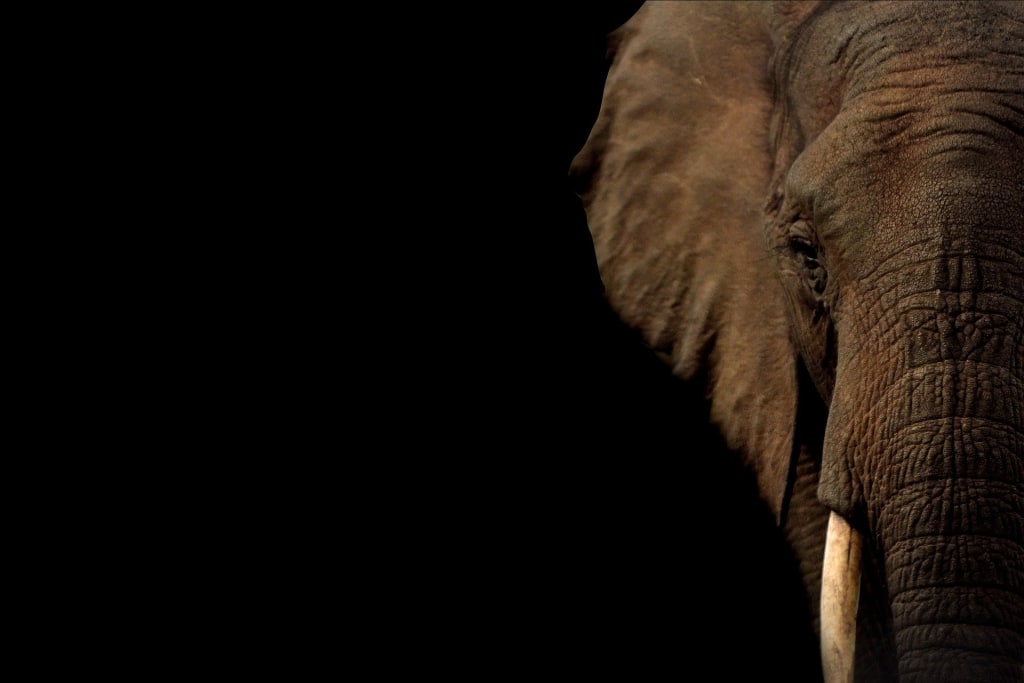
Elephants have no knee joints, so if they fall down they can’t get up again. So … to avoid falling, elephants lean against a tree while they sleep. To capture an elephant, a hunter can cut part way through a tree ahead of time; when the elephant leans against it, the tree will break and the elephant will fall. Unable to rise, the beast cries out, and a large elephant tries to lift it up, but fails. In some accounts, twelve elephants next attempt to lift it, and also fail. Finally a small elephant comes and succeeds in raising the fallen one.
We know this to be true because the Roman emperor and polymath Caesar wrote about this in his Commentaries on the Gallic and Civil Wars. This was confirmed later by Pliny the Elder, who died at Pompeii in AD 73.
Of course, if Pliny the Elder was infallible, he wouldn’t have let himself be trapped in an erupting volcano. And if Caesar was infallible, for that matter, he wouldn’t have let himself be ambushed and murdered by his own colleagues in the Roman Senate.
Except, of course, that it isn’t true. Elephants do have knees.
There’s more where that came from. Elephants live to be 300-years-old, on average. They travel in herds, are deathly afraid of mice, and brushing one’s teeth with the ivory from their tusks helps make one’s teeth whiter. They once lived in both in Africa and India, but now only live in India.
But wait, there’s more!
Pliny again, this from his Natural History, Book 8, 1-13: “The elephant is the closest of all animals to humans in intelligence. It understands the language of its own country, and can therefore understand and obey orders. Elephants are wise and just, remember their duties, enjoy affection, and respect religion. They know that their tusks are valuable, so when a tusk falls off they bury it. Elephants are gentle, and do no harm unless provoked. Females are more timid than males.”
Actually, there’s more truth here than you might expect, so good for Pliny! If only Pliny the Younger had his old man’s smarts.
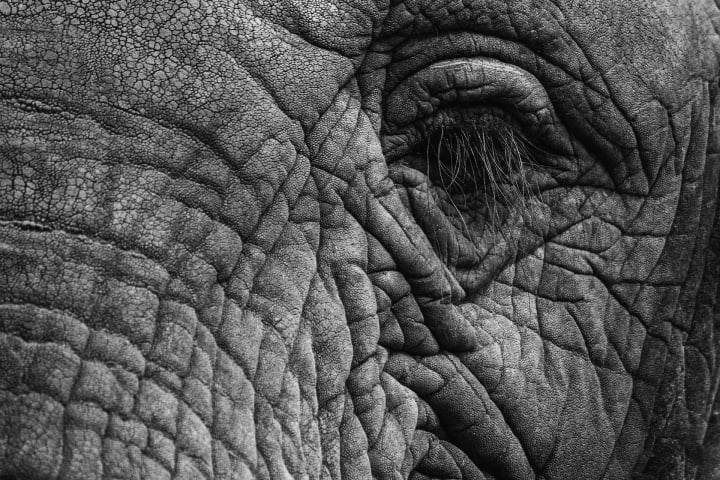
Pliny was one step ahead of the 13th century scholar Bartholomaeus Anglicus, otherwise known as Bartholomew the Englishman (he was from Paris, France actually), who would have been an avid reader of Game of Thrones, had George R.R. Martin been alive and writing then.
“Between elephants and dragons is everlasting fighting, for the dragon with his tail bindeth and spanneth the elephant, and the elephant with his foot and with his nose throweth down the dragon, and the dragon bindeth and spanneth the elephant's legs, and maketh him fall, but the dragon buyeth it full sore: for while he slayeth the elephant, the elephant falleth upon him and slayeth him. Also the elephant seeing the dragon upon a tree, busieth him to break the tree to smite the dragon, and the dragon leapeth upon the elephant, and busieth him to bite him between the nostrils, and assaileth the elephant's eyen, and maketh him blind sometime, and leapeth upon him sometime behind, and biteth him and sucketh his blood. And at the last after long fighting the elephant waxeth feeble for great blindness, in so much that he falleth upon the dragon, and slayeth in his dying the dragon that him slayeth. The cause why the dragon desireth his blood, is coldness of the elephant's blood, by the which the dragon desireth to cool himself. …”
Bartholomew the Englishman didn’t stop there, though.
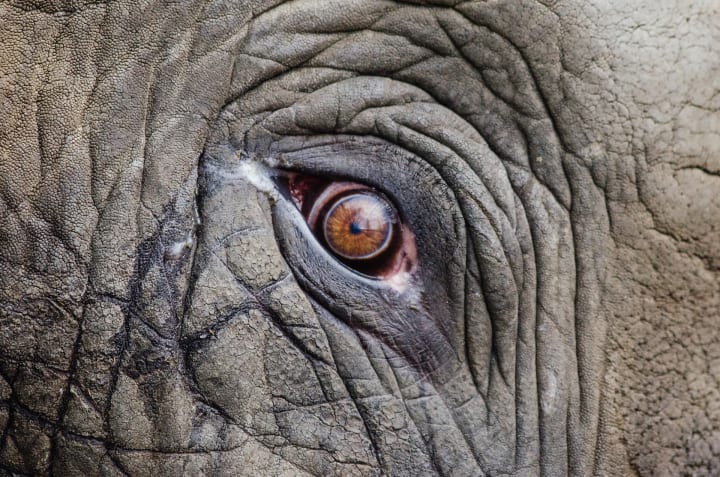
“Among beasts the elephant is most of virtue, so that unneth among men is so great readiness found. For in the new moon they come together in great companies, and bathe and wash them in a river, and lowte each to other, and turn so again to their own places, and they make the young go tofore in the turning again; and keep them busily and teach them to do in the same wise: and when they be sick, they gather good herbs, and ere they use the herbs they heave up the head, and look up toward heaven, and pray for help of God in a certain religion. And they be good of wit, and learn well: and are easy to teach, insomuch that they be taught to know the king and to worship him, and busy to do him reverence and to bend the knees in worship of him. If elephants see a man coming against them that is out of the way in the wilderness, for they would not affray him, they will draw themselves somewhat out of the way, and then they stint, and pass little and little tofore him, and teach him the way. And if a dragon come against him, they fight with the dragon and defend the man, and put them forth to defend the man strongly and mightily: and do so namely when they have young foals, for they dread that the man seeketh their foals.”
As is so often the case, truth is — if not stranger than fiction exactly — just as compelling, and important to know on this World Elephant Day.
Elephants are smart, emotionally aware, highly sociable creatures.
Elephants are the largest land mammal on Earth.
They are a keystone species, and play an important role in the environment.
Having roamed the wild for some 15 million years, though, today they faces significant threats to their survival, thanks to human-wildlife conflict, the climate crisis, habitat destruction and ivory poaching, which fuels the illegal wildlife trade in China and throughout Southeast Asia. The International Union for Conservation of Nature (IUCN) lists the savanna elephant as endangered, and the forest elephant as critically endangered. Fewer than 400,000 remain in the wild, and most of those are in gazetted national parks and other protected areas — themselves under siege from more widespread threats like soil erosion and the climate emergency.
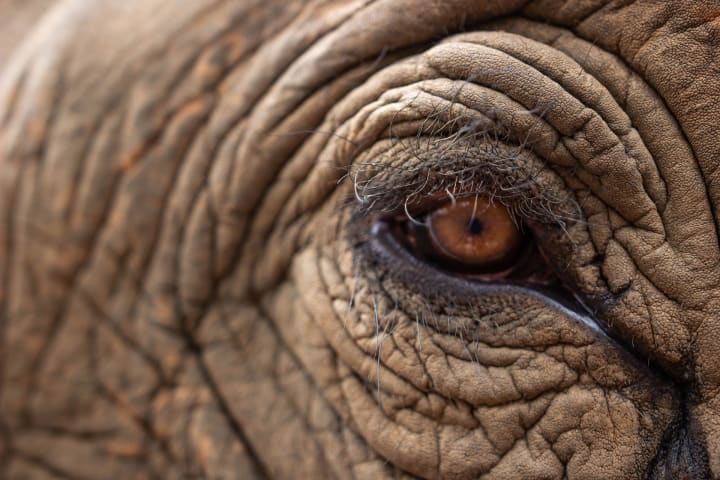
Some more facts, these of the fun kind — and all true. African elephants’ ears can reach up to five feet in length and are used as fans. When elephants flap their ears in extreme heat, the resulting fan motion cools the blood that runs close to the skin surface behind their ears.
Elephants have remarkable memories — that much is true. Matriarchs remember where vital water sources are, even in times of drought, and they know how to navigate the seasons. Elephant society is a matriarchy; it’s believed, though hard to prove without language, that the older females pass their knowledge down to younger females, who themselves will one day lead the herd or family group.
Elephants show compassion toward the weakest members of their group. Elephants only walk at the pace of their slowest member. Nurturing members of the herd, mostly females, surround infants at all times, not only against potential threats, like lions, but also the elements, including wind, rain and the harsh tropical sun.
For this reason, and for any number of others, it’s imperative that they remain.
As the world-renowned broadcaster and wildlife advocate Sir David Attenborough has pointedly said: “The question is, are we happy to suppose that our grandchildren may never be able to see an elephant except in a picture book?”
It’s up to us.
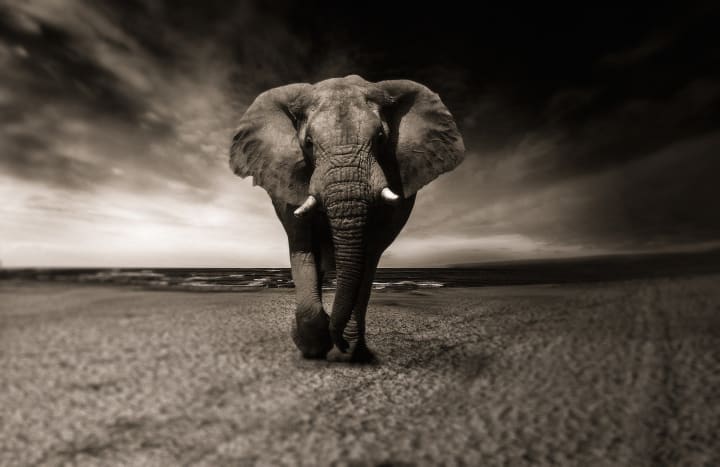
About the Creator
Hamish Alexander
Earth community. Visual storyteller. Digital nomad. Natural history + current events. Raconteur. Cultural anthropology.
I hope that somewhere in here I will talk about a creator who will intrigue + inspire you.
Twitter: @HamishAlexande6






Comments
There are no comments for this story
Be the first to respond and start the conversation.